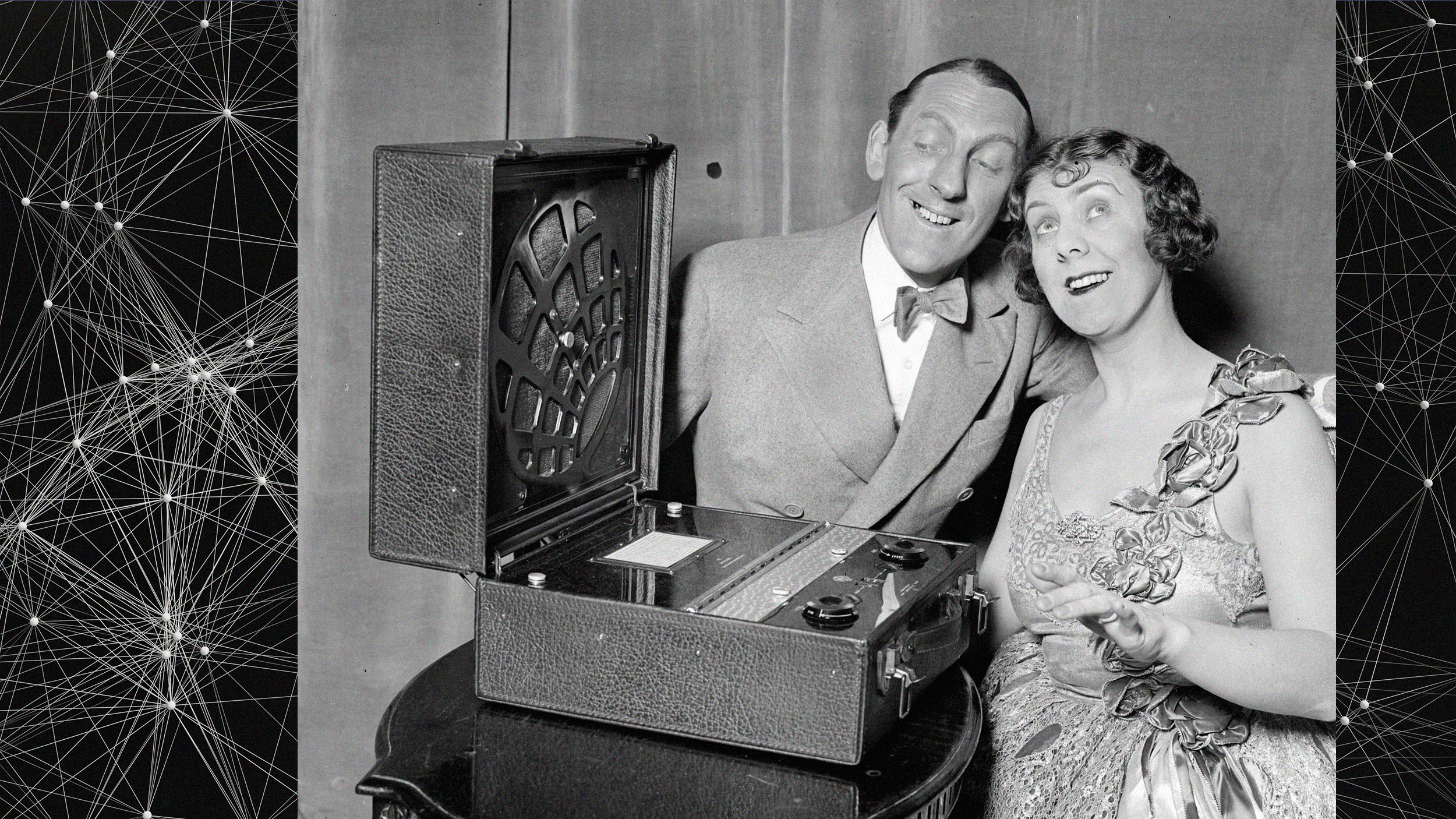During romantic or passionate love, you're gonna feel the sense of being addicted to your partner. TED FISCHER: We define romantic love as an intense desire for another, with the expectation that it's gonna persist into the future. And that distinguishes it from lust, which is generally fleeting, and also for more companionship love, which doesn't have that intensity of desire, that you want to possess the other in some way. GAIL SALTZ: Studies have looked at activity in the brain when recalling passionate or romantic love, versus say maternal love, and finds that different centers definitely are more active. And they would, say, put people into the functional MRI, and they said, think about your partner, or think about your lover. And certain areas lit up, or they said, think about your mom, and different areas lit up. Which is important, because different areas are responsible for the release of different neurotransmitters. Which then come to affect your future feeling states and future behaviors. During romantic or passionate love, what happens from a neurotransmitter standpoint, those chemicals that are released when you have that particular experience? Dopamine goes up. Dopamine is essentially the neurotransmitter of reward. So it is a neurotransmitter that's released when you have new or novel experience, but particularly experiences that are reinforcing. Like gambling. Or something that is really addictive. In fact, literally addictive. It's the neurotransmitter if you snorted cocaine that is most responsible for, wow, that was great, and I totally wanna do it again. So that is a neurotransmitter that definitely goes up when you are in the throes of romantic or passionate love. And what does that mean for you? It means that you're gonna feel the sense of being addicted to your partner. And in fact, it's also the neurotransmitter that goes up for people who have obsessive compulsive disorder. Does that mean you're gonna develop OCD? No. But what it does mean is you're probably going to obsess over your partner. In comes another neurotransmitter, that's called serotonin. It is definitely a neurotransmitter that is active for obsessive compulsive disorder. And for depression. Do you become depressed? No, you really don't. But what you do do is a feature of depression called rumination. So you think about your partner over and over and over again in this really obsessive manner. And, if your partner is separated from you, you're going to have this longing, where you're wanting to be with them, kind of like you'd want to be with a drug if it was taken away from you and you were already addicted to it. There are changes in other neurotransmitters as well. So if you're physically with your partner, the neurotransmitter oxytocin, which is kind of known as the cuddle neurotransmitter, and that makes you feel warm, and snuggly, and intensely bonded to this person. It is particularly released following orgasm. So, you know, if you're having sex with your partner, and things go well, you're gonna feel very attached to them, exceedingly intimate with them. Partially because of that neurotransmitter. There are other neurotransmitters that actually also change. Vasopressin, which has to do with stress level. There's this whole release of neurotransmitters that make you feel very obsessed, very addicted, thinking constantly about them, very intimately, cuddly, attached, and stressed. Actually, it is a stressful condition, to some degree, to be really into your partner. HELEN FISHER: One of the problems with early stage intense feelings of romantic love is that it's part of the oldest parts of the brain that become activated. Brain regions linked with drive, with craving, with obsession, with motivation. And in fact, some cognitive regions up in the prefrontal cortex that have evolved much more recently begin to shut down. Brain regions linked with decision-making, planning ahead. As people who are madly in love can fall madly in love with somebody who's married, who lives on the other side of the planet, who comes from a different religion. And somehow they'll say to themselves, we'll work it out, we can work this out. Because of all that energy of intense romantic love. And also the shutting down of various brain systems linked with decision-making. So one of the things that I say to people is before you decide to marry somebody, spend a good deal of time with them. So some of that early stage intense feelings of romantic love can begin to subside. And you can begin to really see what you've got. As a matter of fact, I'm very optimistic about the future of relationships, because we're spending so much time now getting to know somebody before we wed. You know, a great many people are having these one night stands, and friends with benefits, and living together before they marry. And there was a recent study, which they asked a lot of single people who were living together with somebody why have they not yet married? And 67% were terrified of divorce, terrified of not only the legal and the financial and the economic, but the personal and social fallout of divorce. And so I began to realize, maybe all of this hooking up, and friends with benefits, and living together is not recklessness. Maybe it's caution. Maybe singles are trying to learn every single thing they can about a potential partner before they tie the knot. And in short, marriage used to be the beginning of a relationship, now it's the finale. And I think that that is very positive. As a matter of fact, I work with match.com, I'm their chief scientific advisor. And we did a study of married people. Not on the site match.com, of course. Of 1100 married people. And I had reasoned, well, if there's this long pre-commitment stage of getting to know somebody, maybe by the time you walked down the aisle, you know what you've got, you're happy with what you've got, and you're gonna build a long, stable really happy marriage. Maybe we're going towards a time of happier marriages, because relationships can end before you tie the knot. So within this study, I asked these 1100 married people a lot of questions, but one of the questions was, would you remarry the person you're currently married to? And 81% said yes. And I think that with what I call fast sex, slow love, with this slow love process of getting to know somebody very carefully, over a long period of time, it's gonna help the brain readjust some of these brain regions for decision-making. You're gonna get to know how this person handles your parents at Christmas, or whatever holiday. You know, how they handle your friends, how they handle their money, how they handle an argument, how they handle getting exercise, and their own health and your health, et cetera. You learn a lot about the person. I'm very optimistic about the future, because of this concept of slow love. SALTZ: In terms of the science to support what is a good partner choice, for the long haul, it does seem that having very similar values, and to some degree, having a lot of similarities in general, often leads to a longer term ability to maintain the relationship. And why is that? And I'm not talking now about sexual compatibility. I'm not talking about that wonderful, passionate feeling. But I'm really talking about just maintaining any relationship. It is easier when you have fewer bridges to cross. So over time, as this whole neurotransmitter thing settles out, what's left to be able to maintain your relationship going forward? If you're arguing over everything, because basically, you fundamentally don't agree on most things, that is a challenge. Not saying it's a challenge that can't be managed. And I certainly wouldn't say, for example, that opposites can't attract, because they often do. But the question is, what do you do with that down the road? If you're a different religion, if you believe differently in how money should be managed, if you have different goals in terms of family rearing, career aspirations, long-term how you want to live your life. These are bridges that have to be crossed with a lot of communication, and a lot of compromise. To some degree, studies support the less compromise you have to make, the easier. And that's not surprising, right? That's easy to understand. So choosing someone with some similarities will make for less compromise down the road. And then the question becomes, how good are you and your partner individually at communication, at compromise, at being able to make choices that really aren't your first choice, for the service of some greater good? FISHER: We all wanna sustain a long-term happy partnership. And psychologists will give you a long list of smart ways to sustain it. But I'd like to say what the brain can add. I studied the brain. And the first thing that you wanna do is sustain the three basic brain systems for mating and reproduction. Sex drive. Have sex with the partner. Have sex regularly with the partner. If you don't have time, schedule the time to have sex with the partner. Because when you have sex with the partner, you're driving up the testosterone system, so you're gonna want to have more sex, but you also have all the cuddling, which is gonna drive up the oxytocin system, and give you feelings of attachment. And having sex with the person, any kind of stimulation of the genitals drives up the dopamine system and can sustain feelings of romantic love. And of course, there can be good jokes about it, and relaxation about it, that is good for the body and the mind. So have sex with the person and sustain that brain system of the sex drive. To sustain feelings of intense romantic love, do novel things together. Novelty drives up the dopamine system and can sustain feelings of romantic love. And this isn't just in the bedroom. Just go to a different restaurant on Friday night. Take your bicycle instead of a car. Read to each other in bed. Sit together on the couch, and have a discussion about something new. Read new books together. Novelty, novelty, novelty sustains feelings of intense romantic love. You also wanna sustain feelings of deep attachment. And to do that, you have to just stay in touch. Learn to sleep in the person's arm. At least start that way. Cuddle after dinner. Walk arm-in-arm arm down the street. Hold hands together. Put your foot on top of his foot or her foot while you're having dinner. Gently, of course. But stay in touch. That drives up the oxytocin system, and can give you feelings of deep attachment to the partner. So, you wanna sustain all three of those brain systems, sex drive, feelings of romantic love, and feelings of deep attachment. But we've also found out what's going on in the brain in long-term happy partners. We did a study, a brain scanning study, of people who were married an average of 21 years. And those people who were married an average of 21 years, who were still madly in love with their partner showed activity in three brain regions. A brain region linked with empathy, a brain region linked with controlling your own emotions, and a brain region linked with what we call positive illusions, the simple ability, but sometimes hard, to overlook what you don't like about somebody, and then focus on what you do. So last but not least, we've now known that if you say several nice things to your partner every day, I would suggest five, but if you can only pull off two or three, whatever. Say nice things to your partner. That actually reduces their cholesterol, reduces their cortisol, which is the stress hormone, and boosts their immune system. But it also boosts yours. So what the brain says about a happy long-term partnership is overlook what you don't like and focus on what you do, express empathy for the partner, control your own emotions, have sex with the partner, do novel things together, stay in touch, and say several nice things every day. And your brain will help you sustain a long-term deep attachment. We're built to love. |
The symbol for love is the heart, but the brain may be more accurate.
▸
14 min
—
with
▸
5 min
—
with
Related
Your heart rate reveals your brain activity, which in turn can predict hit songs — and maybe stock performance, as well.
Your brain on sex, love, and rejection with biological anthropologist Helen Fisher.
▸
8 min
—
with
Experts explain how lie detectors work, what happens in the brain when we tell lies and how accurate polygraph tests are.
Fear creates distraction, and that can be a positive experience.
About six minutes after the heart stops, the brain essentially dies.






